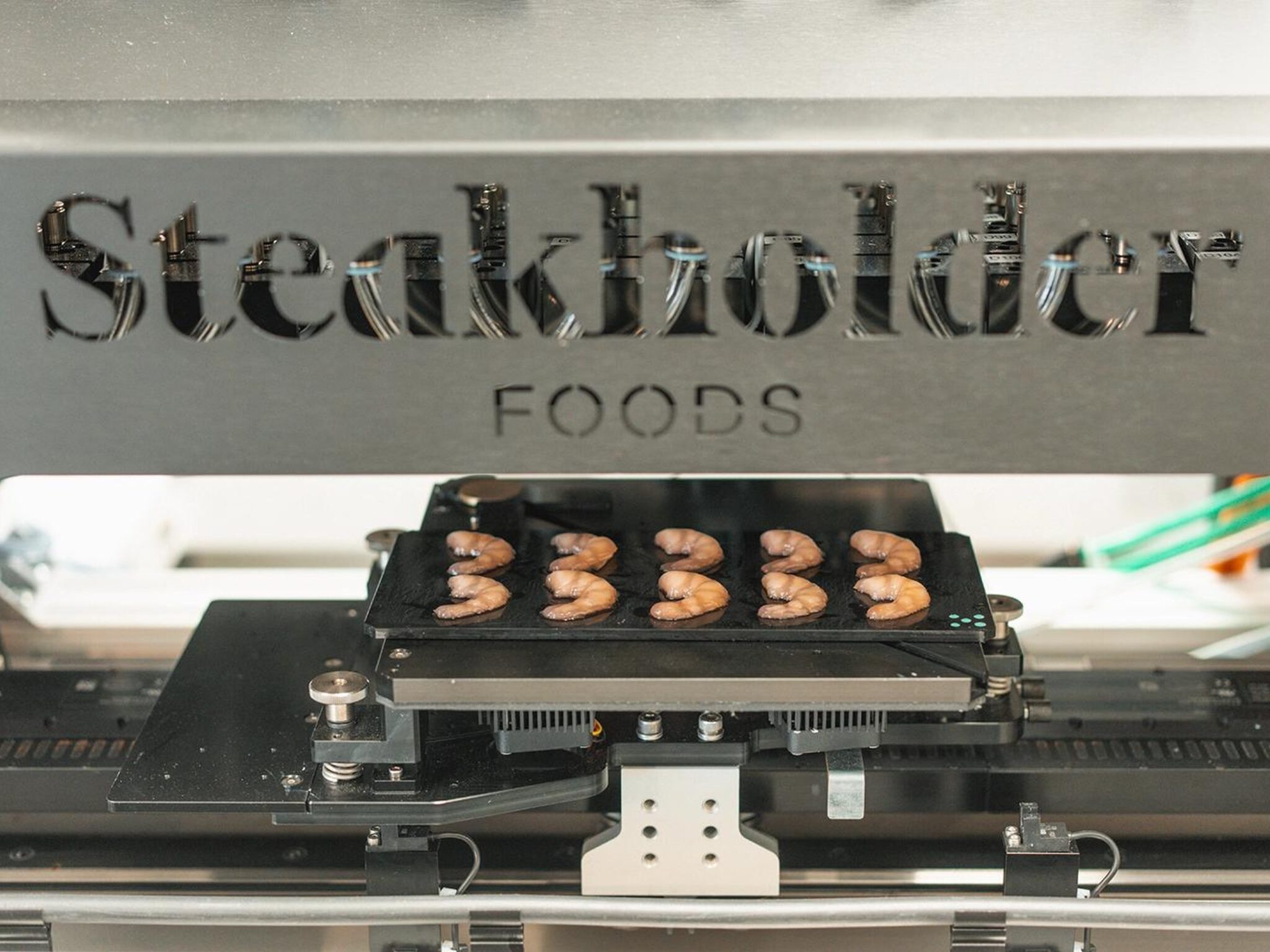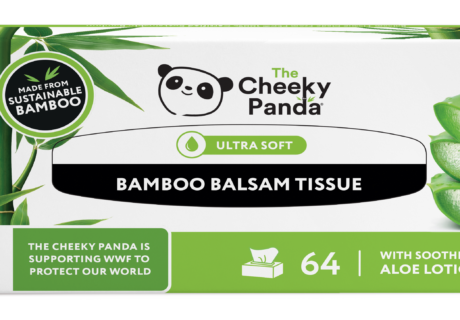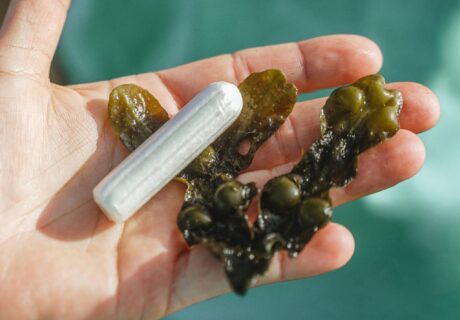3 Mins Read
Israeli startup Steakholder Foods has added a 3D-printed shrimp prototype to an expanding roster of alternative seafood products. The company plans to also introduce a hybrid version if costs allow.
A month after unveiling the world’s first 3D-printed eel alternative, Steakholder Foods has gained another ‘first’ with its new shrimp analogue.
The new innovation was created using precision printing on the company’s proprietary DropJet printed, which is designed specifically for fish and seafood analogues. It uses a shrimp-flavoured ink designed by its food tech team, and will hope to accelerate Steakholder Foods’ route to market.
Pondering hybrid seafood
Steakholder Foods, formerly known as MeaTech, plans to roll out its seafood portfolio – which currently comprises a cultivated grouper fish fillet (in collaboration with Umami Meats), and the 3D-printed eel and shrimp – to future customers in two potential forms. The first would be a standard 3D-printed analogue, while it’s considering making hybrid seafood (a combination of plant-based and cultivated ingredients) as well, if it’s able to scale in a cost-effective manner.
“By unveiling a second new species of plant-based, 3D-printed seafood this month, we expect to position Steakholder Foods to sell and deliver its first DropJet printer in 2024, offering partners and customers a unique opportunity to benefit from the expanding global seafood market, while making the right kind of impact on the environment,” said CEO Arik Kaufman.
Speaking after the unveiling of the company’s eel analogue, Kaufman hailed its 3D-printing tech and potential as a hybrid seafood product: “Such versatility could significantly boost profitability for food companies and lead the way to a shift towards more efficient and sustainable practices in the industry. This product exemplifies the broader possibilities our technology offers our partners.”
It’s an approach vaunted by other entrepreneurs in the alt-seafood space too. Varun Gadodia, co-founder of India’s SeaSpire, told Green Queen in September: “We believe the category will be unleashed by the rise of biotech-driven solutions – [like] cell-based and synthetic biology – and aim to develop enabling technologies or solutions for hybrid seafood alternatives.”
Steakholder Foods, which has previously also unveiled a hybrid 3D-printed/cultivated steak, expanded its business model last year to serve as a B2B supplier of 3D bioprinters and bio-inks for alternative protein manufacturers. Its tech can create structured end products – whether that’s plant-based, cultivated or hybrid – to create realistic meat alternatives.
The importance of shrimp alternatives
The company’s decision to expand its seafood lineup with shrimp makes sense when you consider that shellfish represents a $68B market. And just last year, 7.6 million tons of shrimp were harvested globally. But shrimp farming is associated with a host of different issues. Crustaceans like shrimp account for 22% of the total carbon emissions from fishing, despite making up just 6% of all the tonnage landed.
Meanwhile, a WWF report from last year revealed that illegal, unreported and unregulated fishing of shrimp and prawns amounted to potential economic losses of about $47M each year between 2015 and 2021. In fact, 26.4% of all shrimp fishing activities were potentially illegal and unregulated between 2016 and 2021.
The seafood species faces climate threats as well. Scientists have warned that pink shrimp could lose 70% of their habitats in the Gulf of Mexico by the end of the century. Shrimp has also suffered from population declines, with with spawning population only an eighth of what it was in 1908. And there has been a collapse in Atlantic shrimp numbers too, thanks to climate-change-induced ocean warming.
Steakholder Foods says its heavy-duty printing solution can help meet growing demands through high-volume, efficient and sustainable production, offering a scalable, eco-friendly alternative to traditional shrimp farming. The aforementioned SeaSpire is working on a shrimp prototype as well. Meanwhile, other players in this space include Vegan Zeastar (Netherlands), Thai Union (Thailand), HAPPIEE! (Singapore) , Lily’s Vegan Pantry, Plant-Based Seafood Co. (both US) and Boldly (Australia).
The post Steakholder Foods: Israeli Startup Expands Seafood Range with 3D-Printed Shrimp appeared first on Green Queen.





